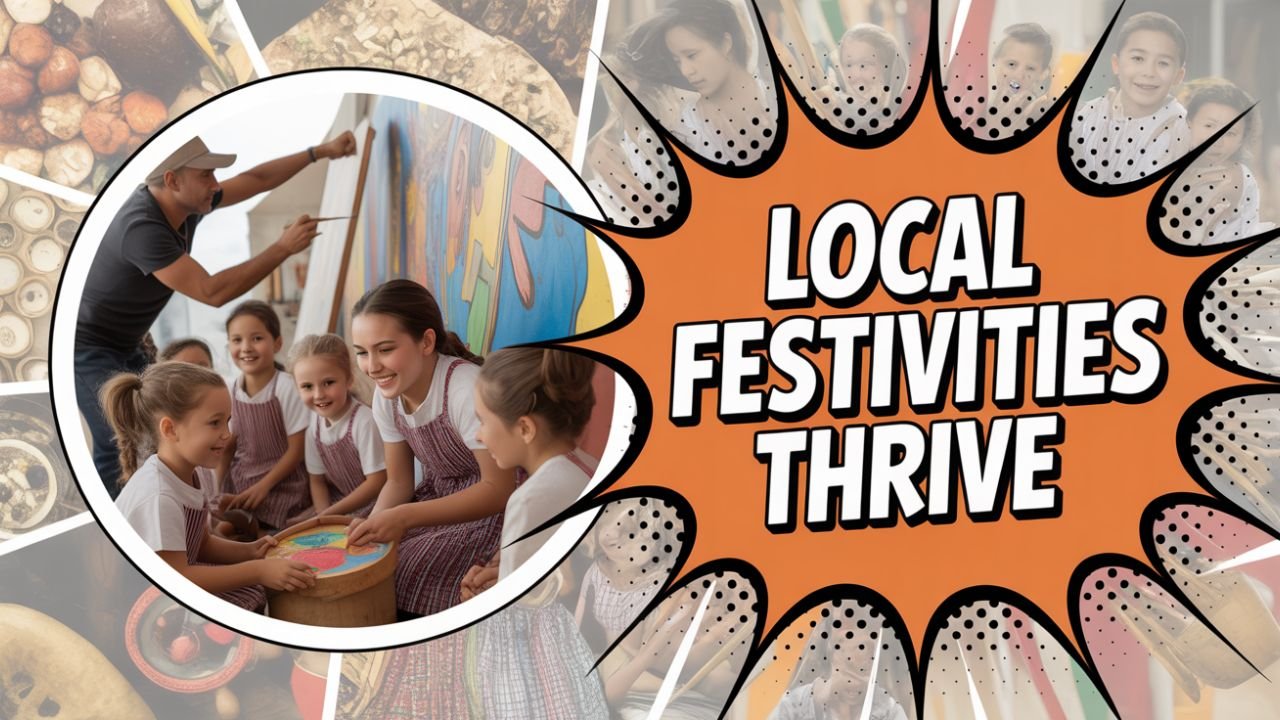When a festival plans to establish itself in a new city or country, building strong partnerships with local authorities and promoters often makes the difference between success and failure. Experienced organizers know that local partners bring invaluable experience and knowledge. They not only understand the complexities of permitting and legal procedures, but can also provide guidance on cultural traditions and local sensibilities. Such partnerships ensure that an international festival can easily adapt to the local context, gain community support, and address any issues long before showtime. In this article, we’ll explore how to effectively partner with local event promoters and government officials and the benefits they offer.
The Importance of Local Partners
Organizing a festival in an unfamiliar location without local support is like navigating uncharted waters without a map. Local authorities—such as municipalities, tourism boards, regulatory agencies—and local promoters—experienced regional organizers—provide crucial guidance and resources that an outside team lacks. Involving these partners during initial planning provides the following benefits:
1. Permitting and Legal Compliance:
Every region has its own rules and regulations—noise control, crowd capacity limits, health and safety codes, environmental regulations, and more. Local officials guide the complex permitting process and ensure that all necessary licenses and approvals are obtained in a timely manner. A local promoter who has previously organized events in the area already knows which permits are required, when to file the necessary paperwork, and which officials to contact. This reduces the likelihood of costly legal disputes or event cancellations.
2. Cultural Understanding and Community Support:
An event that is successful in one country may fail or even appear offensive in another. Local partners provide information on cultural norms, holidays, and audience preferences. They advise on which local culinary providers will be most appealing, how to accommodate religious or cultural sensitivities, and how to schedule event dates. Engaging with local officials and community leaders also builds positive relationships, improving the festival’s reception.
- Marketing and Audience Reach:
An internationally renowned festival may be renowned, but to attract a local audience, it is essential to adapt it to the local language and culture. Local promoters understand the media landscape and consumer behavior. They know which social media platforms, radio stations, and influencers are effective in communicating messages to local audiences. Their networks—local mailing lists, media contacts, and on-ground teams—can greatly enhance festival publicity.
- Resources and Infrastructure:
Organizing a festival involves a network of services and vendors—stages, sound and lighting equipment, fencing, generators, catering, security, medical teams, etc. Importing everything from abroad is expensive and inconvenient. Local partners can connect with reliable vendors and staff and provide equipment locally at reasonable prices. They can also provide information on local venue selection, transportation, and accommodation.
- Crisis Management and Risk Mitigation:
Unexpected problems can always arise—strong weather, regulatory changes, or other crises. When international organizers partner with local authorities and promoters, they have the support of emergency services and experienced personnel. The local team has prior experience with known measures and contingency plans, which helps ensure a safe and organized event.
Partnership Structure: Roles and Responsibilities
A clear structure between the international team and local partners is essential for a successful event.
Role of the International Team:
International organizers primarily bring the festival’s vision and brand. They manage key artist bookings, brand elements, and some major sponsors. They have experience with operational and technical standards, ensuring the quality of the main festival.
Role of the Local Promoter:
The local team implements the event on the ground. They obtain all local permits and licenses, coordinate with authorities and law enforcement, and ensure compliance with local regulations. They are also responsible for local marketing, cultural advice, and venue management.
Shared Responsibilities:
Collaboration between both teams is essential in some areas—such as budgeting, talent selection, and marketing strategy. Clear decision-making and shared responsibilities facilitate collaboration.
Financial Structure and Profit-Sharing
It is important to determine the financial structure of the partnership:
1. Joint Venture:
The international and local teams share costs and profits. For example, both can invest 50/50and profits or losses can be shared equally.
2. Fee + Bonus Model:
The local promoter receives a fixed fee plus a bonus or dividend based on sales.
3. Licensing/Franchise Model:
The local team pays a fee for using the brand and bears most of the financial risk and profit.
All financial agreements should be clearly spelled out in writing.
Communication and Coordination
Constant communication is essential for success.
- Regular Meetings: Conduct timely calls and video conferences.
- Appointing Liaisons: Have coordinators on both teams.
- Cultural Sensitivity: Communicate clearly and patiently.
- Unified Messaging: Have a coordinated approach to external communications from both parties.
Working with Local Authorities
Collaboration with government and municipal authorities ensures permissions, safety, and community support.
- Initial Contact: Involve authorities early.
- Permits and Regulations: Obtain all necessary licenses and approvals in a timely manner.
- Community Trust: Take local residents’ concerns into account.
Tips for a Successful Collaboration
- Choose the Right Partner: Select based on experience and commitment.
- Clear Contracts and Agreements: All responsibilities and financial details should be in writing.
- Flexibility and Learning: Adapt to local customs and new practices.
- Shared Success and Respect: Respect the local team and officials after a successful event.
Conclusion
Successfully organizing an international festival in a new region is only possible through strong partnerships with local authorities and promoters.
- Local expertise, legal compliance, cultural sensitivity, marketing, and infrastructure are crucial.
- Clarify roles and responsibilities.
- Keep the financial structure written and transparent.
- Maintain regular communication and coordination.
- Be sensitive and flexible to local customs.
- Share credit for success and learn from experience.
Strong partnerships are key to the festival’s success, where both local and international teams share the challenge and the celebration equally.
